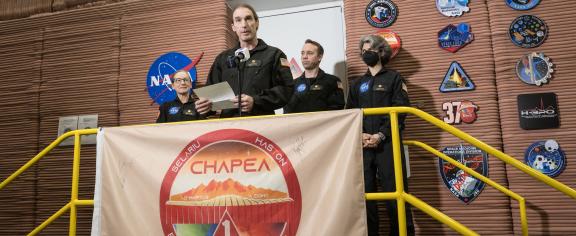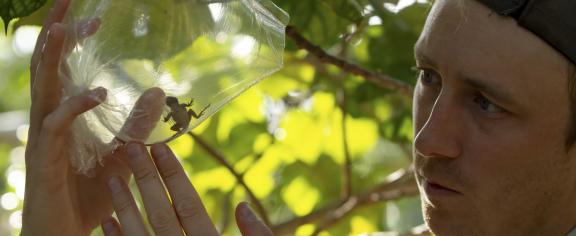2024-07-31
A Georgia Tech alum has emerged after living in a simulated Mars habitat at the Johnson Space Center in Houston for the past year.
2024-05-15
A team of Georgia Tech and MIT researchers found that discarded brewer’s yeast, when encased in hydrogel capsules, becomes a viable and inexpensive method for purifying contaminated water.
2024-06-03
The database will help researchers explore questions about the causes and effects of power outages and how policy interventions can help strengthen grid resilience.
2024-05-20
Researchers in the School of Economics hope the tool they're developing can help policymakers and community organizations implement more timely and targeted interventions to alleviate hunger on the continent.
2024-04-30
Stroud joins nine newly appointed Fellows and ten ESA Early Career Fellows, elected for "advancing the science of ecology and showing promise for continuing contributions" in the field.
2024-04-03
Researchers at Georgia Tech have teamed up with NASA and five peer institutions to teach dog-like robots to navigate craters of the Moon and other challenging planetary surfaces.
2024-04-01
A new study from Georgia Tech's School of Economics is the first to tie high levels of social media exposure to increased visitors to the U.S. National Parks — and the increased crowding and ecological damage they bring with them.
2023-12-07
Students tackled climate change in the Fall 2023 Emory Global Health Institute (EGHI) /Georgia Institute of Technology (GT) Global Health Hackathon, Nov. 11, at Tech Square ATL Social.
2024-02-21
Energy materials facilitate the conversion or transmission of energy. They also play an essential role in how we store energy, reduce power consumption, and develop cleaner, efficient energy solutions.
2024-01-30
As the idea of solar geoengineering picks up steam, Harding invites everyone to join the conversation, starting with learning about what it is, how it works, and whether or not this once-niche proposition really can save the world.








